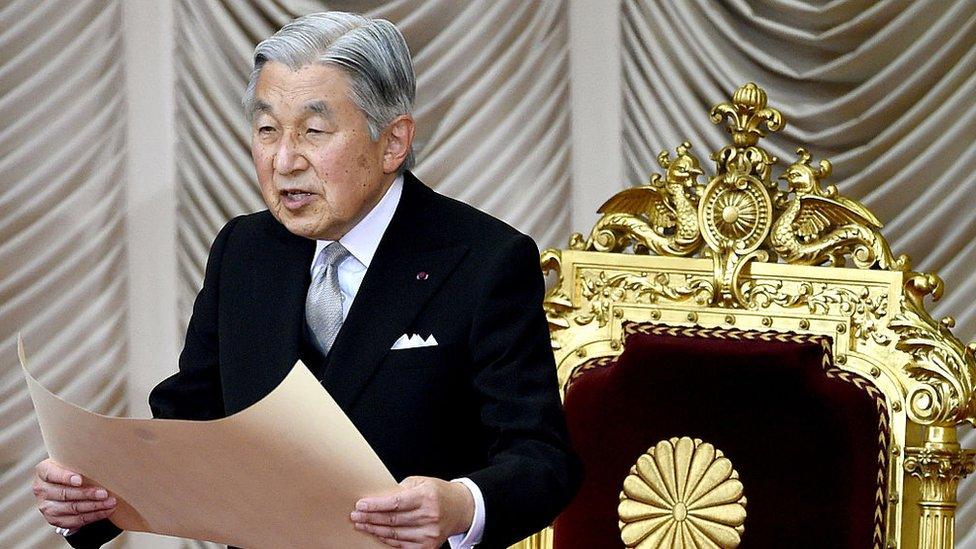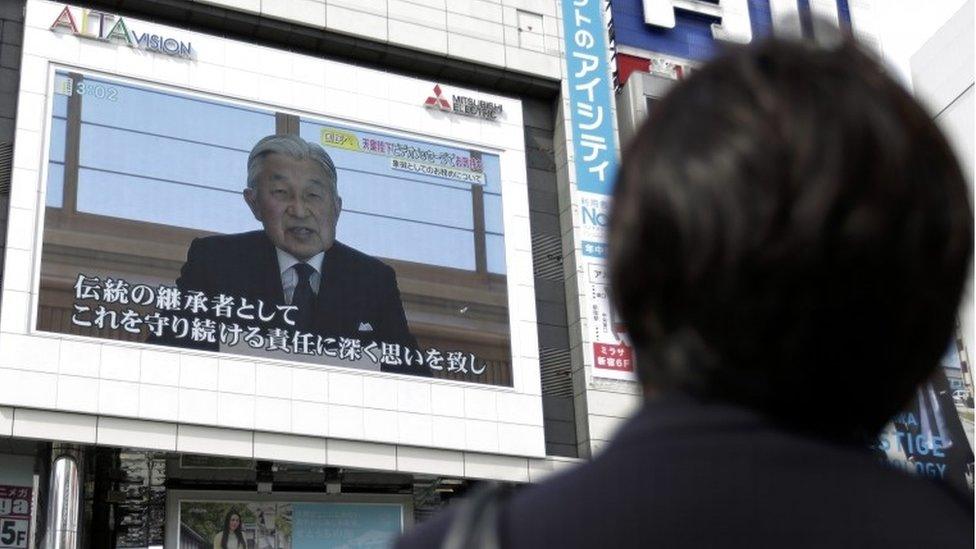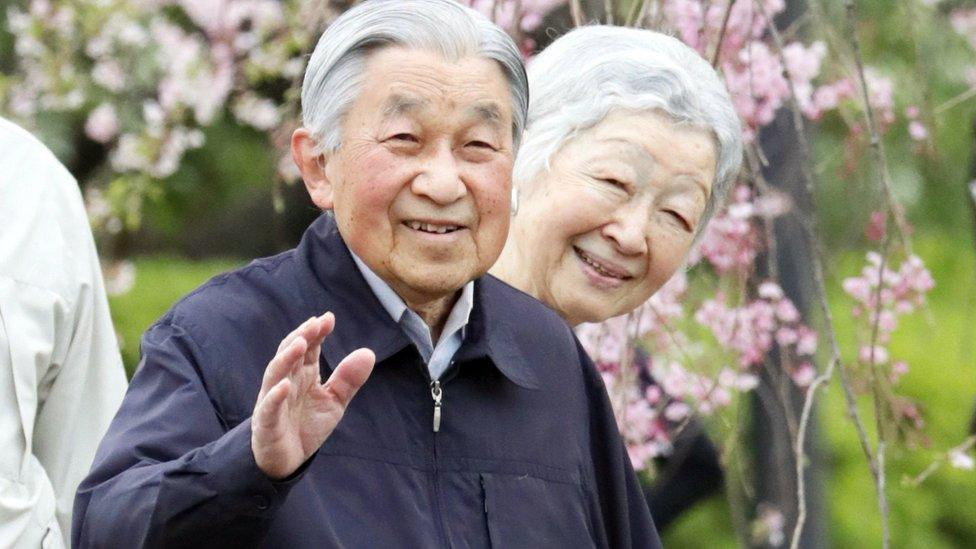Japan begins discussions on emperor's abdication
- Published

The 82-year-old emperor has been on the throne since 1989
A panel in Japan has begun discussions on the possible abdication of Emperor Akihito.
The 82-year-old emperor said in July that his age was making it hard for him to fulfil his duties.
Abdication is not mentioned under Japan's existing laws, so they will need to be changed to allow him to stand down from the role.
The six-member advisory panel to Prime Minister Shinzo Abe aims to submit its report as early as May next year.
Akihito, who has had heart surgery and was treated for prostate cancer, has been on the throne since the death of his father, Hirohito, in 1989.

If he does abdicate, it would be the first time a Japanese emperor has done so since 1817. Current laws only mention that an heir shall accede to the throne in the event of the emperor's death.

What does the emperor do? The emperor has no political powers but has several official duties, such as greeting foreign dignitaries. Japan's monarchy is entwined in the Shinto religion and the emperor still performs religious ceremonies. He also plants and harvests a small rice paddy inside the palace while the empress raises silkworms.
Is this the first time a revision of the law has been discussed? A debate about whether or not a woman would be able to ascend the throne was triggered in 2006 when the emperor had no grandsons, but was postponed after a boy was born to the imperial family.
What do the public think? Most support the emperor's desire to step down. But the move is opposed by some more conservative sections of Japanese society.

Emperor Akihito has not explicitly say he wants to abdicate, as he is barred from making political statements.
But Mr Abe previously stated that the government would discuss what could be done about the emperor's wishes.
"I do respect the heavy responsibility the emperor must be feeling and I believe we need to think hard about what we can do," he said in August this year.
The advisory panel will meet several times this year, discussing issues such as legislating abdication and changes to the emperor's official duties.
A summary of issues by the panel could be released as soon as January 2017.
- Published8 August 2016

- Published30 April 2019
